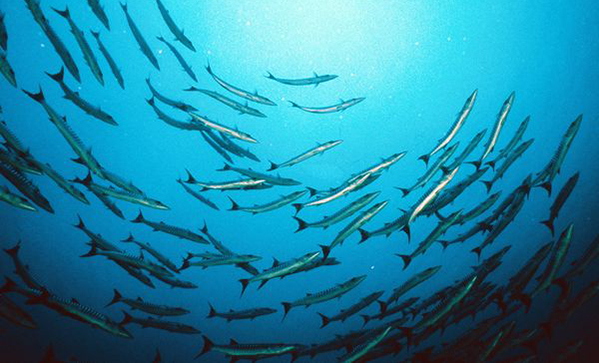There are no shortage of broken fisheries in this country—from the collapsed cod and Atlantic salmon fishery on the east coast to the slowly-recovering Great Lakes, there’s a lot of grief to go around if you happen to be a fisherman (or a casual angler ,or mere seafood fan). It gets worse though: according to a new paper, there may be no recovery after overfishing.
The study in PNAS argues that when one major species is removed from an ecosystem (i.e., by overfishing), the ecosystem “flips” to an “alternate state”. In other words, because the old order is gone, a new one develops. If this happens, the place of the overfished species is lost, and it can’t come back.
For example, after the cod fishery collapsed in the 1980s, a sea urchin fishery developed in Maine. Urchin is highly prized in Japan (because it’s delicious), and the industry was soon worth $30 billon. That drove overfishing, though. A decline in sea urchins led to an explosion in seaweed—sea urchins eat seaweed, but there weren’t enough to keep the seaweed in check. The explosion in seaweed provided shelter to crabs, and the increasing number of crabs devoured remaining sea urchins. The removal of the sea urchins created an ecosystem unfavourable to sea urchins, and now it’s nearly impossible for the sea urchin fishery to recover.
Of course, the study’s authors admit that this won’t happen with every species and every ecosystem—but its’ nearly impossible to predict what might happen. Given the facts, and given that Canadian fisheries have collapsed before, maybe its’ time to pay overfishing a bit more attention. We’d hate a future that doesn’t involve angling in BC.


